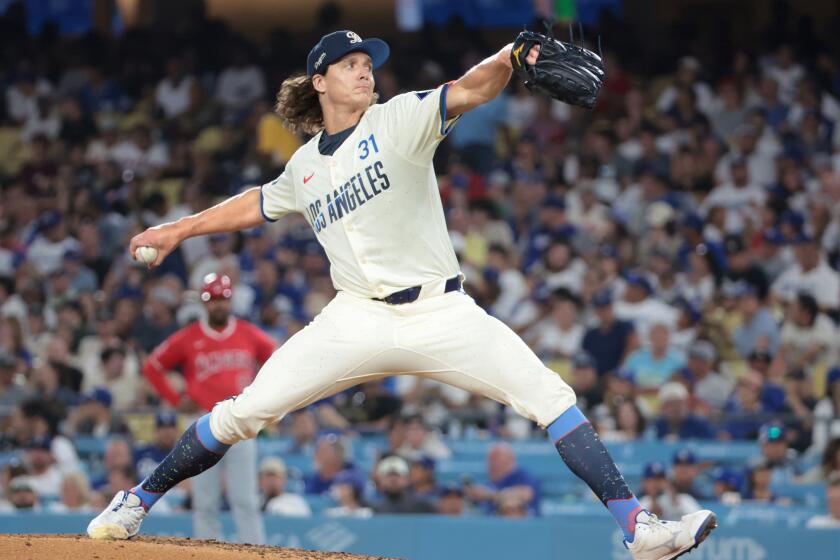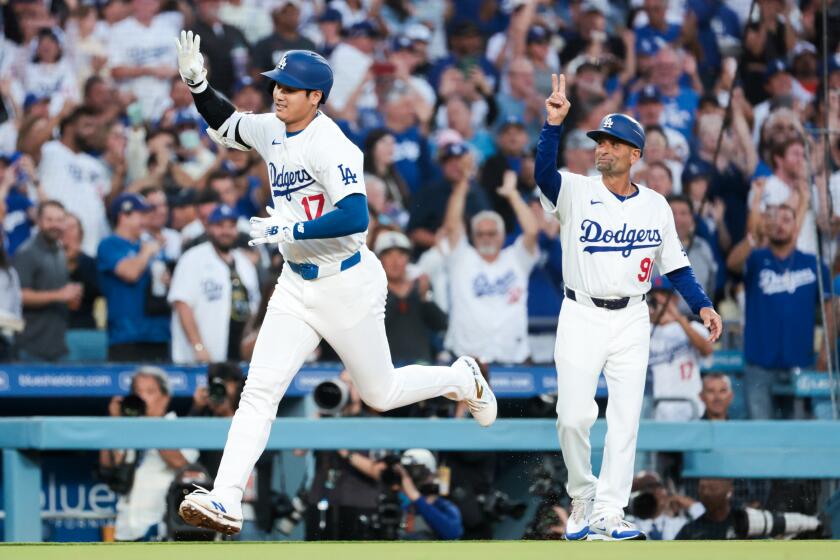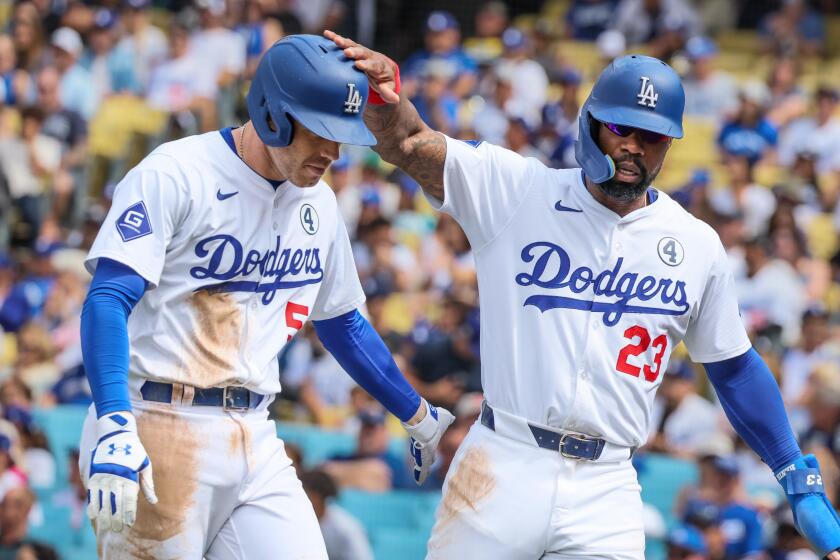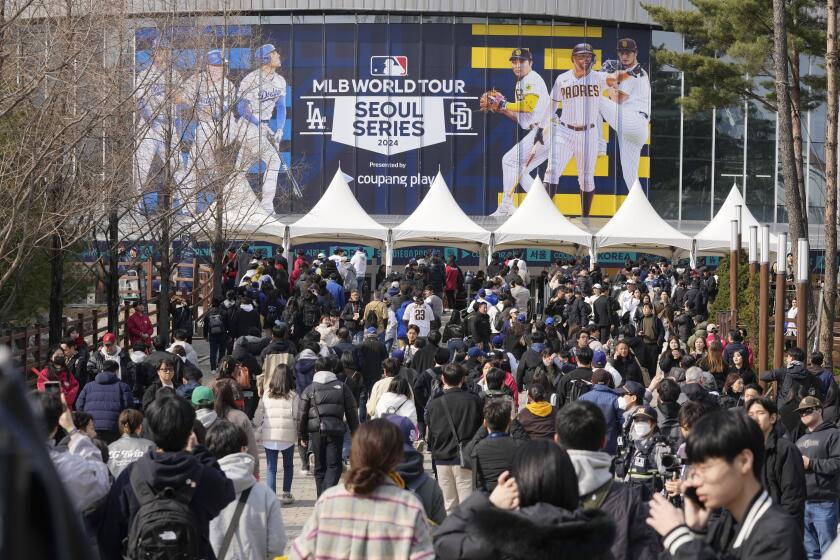Frank McCourt sought a $25-million cash infusion for Dodgers last year
Frank McCourt needed money last year, so he solicited an infomercial king to invest in the Dodgers. He offered an array of enticements: game tickets, preferred parking, employee discounts on team merchandise, invitations to news conferences and — atop the list of benefits — “Championship Ring (when we win World Series).”
McCourt proposed a deal in which he would receive $25 million right away. He would have five years to either pay the money back, with interest, or convert the loan into a tiny share of team ownership. The choice would belong to McCourt.
Bill Guthy rejected McCourt’s overtures. Guthy — cofounder of Palm Desert-based Guthy-Renker, the company perhaps best known for marketing the Proactiv acne treatment — said he would prefer to consider “less risky investments,” McCourt said in a deposition.
McCourt had similar terms — an upfront loan, convertible into a small ownership share if not repaid — with three investors when he bought the Dodgers in 2004, in what team attorney Marshall Grossman called “friends and family” investments.
Grossman said McCourt repaid one of the three loans on time and the two others had not come due. Grossman would not name the investors, but the holders of the outstanding debt were identified in court papers.
Jason Moskowitz, a Palos Verdes entrepreneur and chief executive of SkyBridge Private Air, told The Times he was the investor who had been repaid.
Moskowitz, whose Twitter account identifies him as “Dodgers investor,” said he contributed millions toward a loan to help McCourt buy the Dodgers.
Moskowitz would not say how many millions he invested, but he said he wanted to own part of the Dodgers and did not expect McCourt would have been able to pay him back. He said McCourt repaid the loan with interest in conjunction with a refinancing, preempting the chance for Moskowitz to end up with a small share of the team.
“I made a lot of money,” Moskowitz said. “I was really happy. Frank and I are still friends.”
By the time McCourt approached Guthy, five years after Moskowitz made his investment, the Dodgers’ finances had become strained. Corrie Murphy, a spokeswoman for Guthy, told The Times that Guthy had considered McCourt’s proposal a “standard debt investment” and said the prospect of owning a share in the Dodgers had no appeal for him.
“Mr. Guthy’s intention was to provide capital for future McCourt Group initiatives, not to assume an ownership position in the team,” Murphy said in a statement.
Under McCourt’s proposal, he would either have repaid Guthy with interest or granted him a 2.77% share of the Dodgers. That percentage, based on the $25-million loan, would have valued the Dodgers at $900 million.
In his deposition, McCourt acknowledged that was “a very high number” for the franchise value.
“It was going to obviously get a reaction,” McCourt said, “and it would be the starting point of a negotiation.”
bill.shaikin@latimes.com
scott.reckard@latimes.com
More to Read
Are you a true-blue fan?
Get our Dodgers Dugout newsletter for insights, news and much more.
You may occasionally receive promotional content from the Los Angeles Times.












